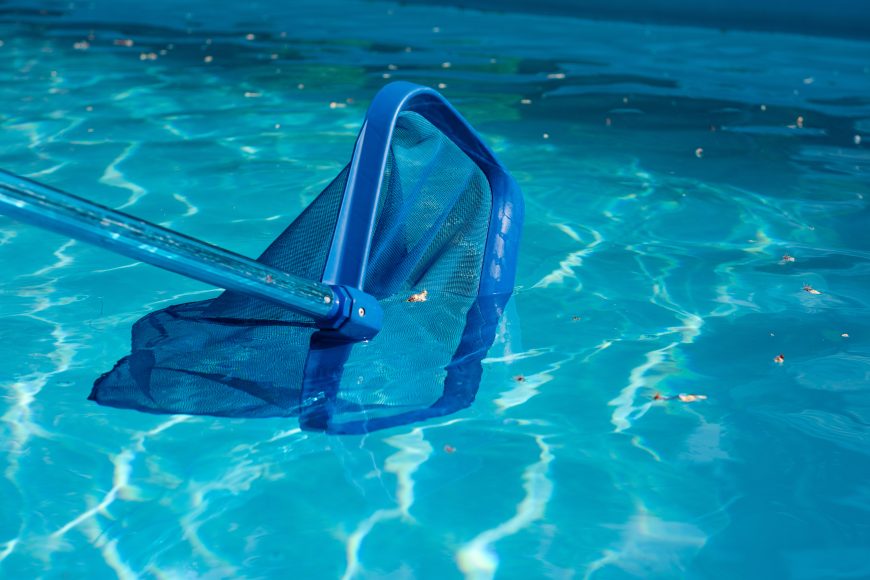- By CycreekPestAdmin
- In General
- Tags General
Hanging out poolside is a great way to enjoy time with family and friends, get exercise, and keep cool in the heat. But taking care of your swimming pool does require some effort and intentionality. Pests are attracted to water, which means you’ll need to take some extra precautions to keep your pool area enjoyable and free from pests.
Let’s take a look at some of the pests that invade pools:
Water Striders
These creepy bugs look similar to mosquitoes but are larger. Their very long, splayed legs have tiny hairs on them that allow them to ‘stand’ on the water as they are hunting for prey. They are fairly harmless and are not known to bite humans.
Ants
These unassuming pests can do a surprising amount of damage to pools. Their love for water and the surrounding electricity attracts ants to pool areas. Clogging up pool filters, causing damage to electric wiring, or tunneling through pool liners—ants can create all kinds of havoc.
Backswimmers
These pests are ½” long and use their legs as oars while they swim on their backs. Also called ‘water skimmers’, they are usually seen on the surface of the pool but can also dive deeply by storing air bubbles under their wings to allow for breathing. When backswimmers bite, it feel similar to a bee sting.
Termites
In the same way that they can destroy the structure of houses, termites can create tiny little holes in the liners of pools. And because they come and go underneath the soil, holes can seem to appear magically without any evidence of pests.
See Also: 3 Reasons Termites Can Go Undetected
Water Boatmen
With a flat body that looks like a boat, this insect uses its legs to propel itself along the surface of the water. Like the backswimmer, it can dive down below the surface by maintaining a pocket of air around its body. These insects don’t bite, but they do attract biting backswimmers.
Mosquitoes
One of the most expected water pests, mosquitoes lay their eggs on still water, although they can usually be kept away when good pool cleaning is practiced. Mosquito larvae found in a pool will take about ten days to mature, so addressing a problem right away is advised.
See Also: Debunking Mosquito Myths
Springtails
These pests are only 1/16” in size and their spring-like tails allow them to jump into the air, making them easily confused with fleas. They don’t bite but they can be very irritating and cause damage to nearby plants.
Midges
These small bugs with two wings find water a perfect breeding ground—and it’s a bonus if there are any fruit trees nearby. Midges are in the fly family, but may be more than a nuisance because some have a painful bite. While they don’t carry diseases that hurt humans, they can be vectors of livestock disease.
Tips for Keeping Your Pool Safe
To keep bugs from being attracted to your swimming pool, follow these guidelines:
1. Clean Your Pool Properly
Maintaining the appropriate chemical balance in your pool water is critical to keeping your pool clean and pests away. Most pests are not as interested in chemical treated pool water and mosquitoes will not lay their eggs in it. Chemical balance and a regular pool brushing regimen also keeps algae away, which can be an attractor for pests.
2. Buy a Pool Cover
Pool covers can keep insects from getting into your pool at night, as well as keeping it clean from free of debris such as leaves and dust.
3. Keep Food Out of Sight
Food is an attraction for insects. Keeping the picnic snacks far away from the poolside, and cleaning up after eating or spills, is a best practice toward pool pest prevention.
See Also: How to Keep Pests Out of Your Pantry
5. Bug-Prevention Gardening
Certain plants help to keep bugs away. For instance, basil tends to ward off flies while catnip may deter the presence of mosquitoes. Rosemary, lemon balm, and citronella plants may also help keep pests away.
6. Proper Landscaping Practices
Practicing proper landscaping will help control pests. Keep bushes and hedges well-trimmed and away from the pool. Be sure puddles are not allow to collect water that could stagnate.
7. Regulate Lights
The ambience of pool lighting is great, until it acts as a beacon to attract pests. Turn pool lights off during the evening hours unless the pool is in use. UV light bulb replacements may also help to minimize the attraction of insects to your pool.
Your swimming pool can be a respite from the hot summer for family and friends. To make the most of your backyard, garden, and pool, you want it to be pest free. For help keeping your pool and backyard free of pests, contact the Houston pest control experts at Cypress Creek.



